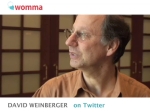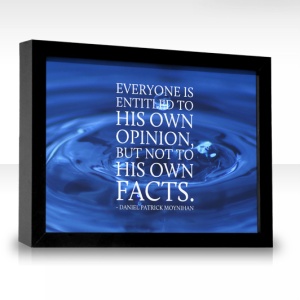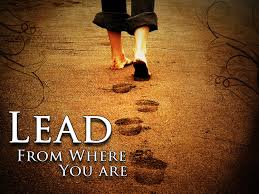 Student teaching is an experience that I anticipated with enthusiasm. After several years of hard work, tutoring, internships and participation in an emergency school setting in Philadelphia I was now ready to become the teacher. All eyes would soon focus on me, rather than the cooperating teacher. For as all good students knew that the person in the front of the room was the source of all knowledge. Suddenly the anticipation that I felt was overpowered with anxiety and fear. The confidence build over three years began to erode with the mere thought of being responsible for all the knowledge necessary to progress front he beginning to the end of the day.
Student teaching is an experience that I anticipated with enthusiasm. After several years of hard work, tutoring, internships and participation in an emergency school setting in Philadelphia I was now ready to become the teacher. All eyes would soon focus on me, rather than the cooperating teacher. For as all good students knew that the person in the front of the room was the source of all knowledge. Suddenly the anticipation that I felt was overpowered with anxiety and fear. The confidence build over three years began to erode with the mere thought of being responsible for all the knowledge necessary to progress front he beginning to the end of the day.
In the days before anticipation guides and reading strategies such as K-W-L charts, I would pay games with children to encourage them to pay attention to the content surrounding the lesson. “Who could stump the teacher?” would challenge learners to pay attention to lessons or read the homework.assignment the night before class. A student generated list, at the beginning of each unit of study, identified the knowledge at the class as a whole brought to the unit. Elementary students enjoy the opportunity to bring knowledge that they’ve discovered on their own to the lesson. As the list lengthens, we marvel at how “smart” we are as a class and how the members have contributed to the knowledge shared and collected as a community. The practices of this new little community invigorate them as pursuers of their of knowledge, knowing that what each contributed was welcomed and acknowledge.
Educators will point to hormones and socialization as two key factors that influence this change between primary and middle school years. What happens, though, between middle and secondary, secondary, and higher education? The subtle shift between students as possessors of knowledge and students as recipients of knowledge is very real, yet very telling when considering the question, “What is knowledge?” When the teacher as facilitator moves from the coach on the sideline to the sage on the stage, the message that the smartest person in the room is the teacher is quite clear!
David Weinberger’s work, Too Big to Know, is a comprehensive look at what constitutes knowledge in a networked society. As technologist, professional speaker and commentator he postulates that society should reconsider what is knowledge now that we know that the facts are not the necessarily the facts and that experts are everywhere. This idea is relatively easy to digest considering that; our society is awash with information. The idea that the smartest person in the room is the room requires one to consider how the world of knowledge has changed with as a result of the internet.
His work addresses ideas that surround knowledge as well as exploring how the body of knowledge is lifted now that the limitations of the old medium of knowledge are lifting. I “scooped” articles, video and audio recordings that support many of the ideas within his body of work. The “Scoop it” contains his bibliography, where some links are provided that support his research. The “scoop” is certainly not inclusive of each piece of data used; however, it is sequential and does not deviate from the text. The resources within it give extensions for learning and knowing on the part of the reader. The topic is daunting at best, yet worth the time to consider each component carefully before proceeding to the next. The Scoop it collection is arranged by topic for personal consideration. I have extrapolated ideas that both resonated with me and challenged me. Here is the Scoop it: Too Big To Know
- The Crisis of Knowledge–
- The foundations of our most important institutions are being shaken as we ask questions that we thought were already settled.
- Traditional journals are now being viewed as blockage systems.
- Knowledge Overload-
- Then-
- Knowing by reducing what fits into our library or journal.
- Old knowledge institutions derived their authority by filtering information for the rest of us.
- Knowledge was structured by a foundation.
- Now–
- Include every draft of an idea-the web is full of loosely connected ideas.
- Our social networks are our new filters. Authority is shifting from experts to networks of people that we know and respect.
- Filters no longer filter out-they filter forward.
- Knowledge is taking the shape of the net; it is messy and does not have any edges.
- Then-
- Bottomless Knowledge-
- Then-
- Massive amounts of information can cause us to go wrong.
- Too many facts prevent us from drawing a conclusion.
- Now-
- Learning a fact can be the same as publishing a fact
- Networked facts point to where they came from and sometimes where they lead.
- The new medium is shedding the old optimism-we can no longer all agree on a conclusion.
- Then-
- The Expertise of Clouds-
- Then-
- Professional knowers needed professional institutions for support
- Information was “fenced in”
- An enclave-work produced by those who share your assumptions
- Now-
- What’s difficult for an individual to know, can be easy for a network
- Connections find and generate experts
- Expertise multiplies when it exists between people
- Then-
-
- A Marketplace of Echoes?-
- Then-
- Echo chambers like quiet libraries in quiet communities
- Within a discourse, some interpretations are privileged
- Now-
- The net is transparent-outsiders look in and insiders look out
- Connections occur across boundaries
- Then-
- Long Form, Web Form-
- Then-
- Physical books-dominant culture of society.
- Everything that is relevant is contained within the covers.
- Author determines sequence of ideas, when they start/finish
- Now-
- Web-form allows ideas to ‘uncurl into their natural shape’
- Ideas escape the author’s grasp-change the world
- Too Much Science-
- Then-
- Facts are about particular things, knowledge should be about universals.
- Amateurs can succeed because institutional professionals can validate them.
- Old model of publishing-a point in time.
- Now-
- Bigness is the first property of networks the scientific world is absorbing.
- The engagement of/with amateurs is widespread-we take it for granted.
- Hyperlinking of science-links back to sources, links into human context and process that produce it, use it, debate and make sense of it.
- Media may always get science wrong because of the attractiveness of a dramatic headline.
- Then-
- Where the Rubber Hits the Node-
- Then-
- Top of Pyramid-all big decisions would flow.
- Hierarchical, top-down decision-making prohibits the common person from contributing. Local knowledge is not used.
- Lack of resilience-when pointed end of pyramid is on one individual.
- Now-
- Hyper-networks-huge organizations spread out and differentiate to solve a problem.
- Network decision-making motivates people to use their local knowledge.
- Moment of decision is a node in a network, which contains more knowledge.
- Then-
- Building the New Infrastructure of Knowledge-
- Then-
- Technodeterminism- technology causes us to use and understand it in prescribed ways.
- Important knowledge was kept from the “common folk.”
- Academic journals are so costly that only a few are able to access them.
- Now-
- Social class, age, and subculture affect how we use the internet and what it means to us.
- The abundance is apparent and changes how we understand knowledge.
- Knowledge is a playlist-not a realm, but a path that gets us to where we wish to go.
- Links change the topography of knowledge.
 Every evening my family and I discuss the events of the day over a shared meal. They know that I am engrossed in a big, semester long project, but find the ideas that surround it rather dubious. In an attempt to prepare them for the premise behind Weinberger’s ideas, I shared the quote that is attributed to Daniel Moynihan: “Everyone is entitled to his own opinions, but not to his own facts.” * My husband’s eyebrows arch and his mouth begins to form a little, “Oh, I don’t think so….” I thought that this would be a good opportunity to engage in a little bit of lively discussion. “Take the common tomato,” I suggest. It is a plant grown during the warm months of the year. My son quickly counter points by reminding me about tomatoes that grow hydroponically or in hot houses! The door opened for a discussion that touched merely the tip of the iceberg. I’ve begun to talk with my son about his learning network and how his is “personal,” that each of use has a network that surrounds us. The key lies in understanding how to use this knowledge now that the facts are no longer the facts, that experts are not necessarily experts and that the smartest person in the room is the room. Therefore, hinges the door of our smart room, built by one network at a time!
Every evening my family and I discuss the events of the day over a shared meal. They know that I am engrossed in a big, semester long project, but find the ideas that surround it rather dubious. In an attempt to prepare them for the premise behind Weinberger’s ideas, I shared the quote that is attributed to Daniel Moynihan: “Everyone is entitled to his own opinions, but not to his own facts.” * My husband’s eyebrows arch and his mouth begins to form a little, “Oh, I don’t think so….” I thought that this would be a good opportunity to engage in a little bit of lively discussion. “Take the common tomato,” I suggest. It is a plant grown during the warm months of the year. My son quickly counter points by reminding me about tomatoes that grow hydroponically or in hot houses! The door opened for a discussion that touched merely the tip of the iceberg. I’ve begun to talk with my son about his learning network and how his is “personal,” that each of use has a network that surrounds us. The key lies in understanding how to use this knowledge now that the facts are no longer the facts, that experts are not necessarily experts and that the smartest person in the room is the room. Therefore, hinges the door of our smart room, built by one network at a time! - *No one is sure if Moynihan actually made this statement or not. Like Weinberger, I found it on the internet
- Then-
- A Marketplace of Echoes?-


Laurie, thanks for writing this post and sharing your project with us. I loved Scoop.it and was excited to see another tool in use in the classroom! I hope when I have some free time (HAHAHAHA) I can read TBTK, as it seems like a super interesting book.
LikeLike
Thanks, Mel! I’d recommend one chapter at a time! Lots to digest…skip around as well. Don’t think that the author would mind one bit!
Laurie
LikeLike
Laurie,
Thanks for another great post. Now I know what Scoop.it is.
A few statements caught my attention … ” What’s difficult for an individual to know, can be easy for a network
Connections find and generate experts
Expertise multiplies when it exists between people”
Like Mel, when I have the time, I might TRY reading TBTK
I view this edcmooc experiment as a diverse blending of people with different , abilities, skills and expertise forming a learning network. We will all share and learn from one another. Sometimes I feel that I don’t know many of the tools and how to use them, but it is one step ant a time. I know that I have a creative side and maybe in that way I can be a contributing member of the group. Time will tell. It’s going to be a great adventure
Willa
LikeLike
Hey, Willa
Can I use the email associated with this account to send a message to you? Have some resources to pass along to you regarding your comments above.
Guess you all are ready to sing the BeeGee’s “Staying Alive” right now just to make it to the last day? LOL
When is your last day of school before the holidays? Hope that you survive!
Laurie
LikeLike
Yes Laurie you may contact me by email. Our last day of school is Dec. 21st. Calling for all kinds of messy weather next week.NOT ;ooking forward to driving in that!!! I am surviving , Students are geared up and livelier than usual…. must be all those TV holiday specials. 🙂
LikeLike
Look forward to taking time to really read through this over the holidays! What a great resource you are. Laurie, are you taking 642? I hope so.
LikeLike
Hey, Wally
I look forward to seeing you next month! Have a wonderful winter holiday and enjoy some time for yourself!
LikeLike
Hi, Laurie,
Thank you for sharing your very insightful and provocative thoughts. They prompted me to reflect on the effects of technology on how we share knowledge and on how we learn.
I like the fact that online social networks lead to decentralization and democratization of knowledge. Social media is disrupting hierarchical institutions – corporations, universities, and political organizations (the traditional gate-keepers of knowledge). The possibilities of shared knowledge and shared power are limitless.
And yet, it seems that we embrace technology without questioning it, without considering the unintended consequences. The way we learn and what constitutes knowledge today are irreversibly changing today, but are they changing for the better? We need the distance of time and the quite space for reflection before we determine objectively all the consequences, and yet, the ferocity of change seems not to allow enough time to reflect.
LikeLike
The time to reflect is certainly one that I value and find a challenge to maintain. I typically hold back my thoughts when questions are posed out of context. I enjoy the opportunity to “mull” an idea over in my head before accepting it as truth.
The instructors who work with adult learners in my program are very open-minded to diverse opinions. We discuss, at length, the struggles we experience with technology, while rejoicing when we discover an idea or program that invigorates our work!
LikeLike
This is really interesting. Three things: 1) I felt the same way. I cried after school every day my first week of teaching second grade. I felt like such a fraud because I didn’t know everything. (I got over it when I realized “knowledge” is about the quest to keep learning, not a static set of facts one owns); 2) love the “then” and “now”–so interesting, so right, and so much what I grapple with as a teacher still, esp. at an institution that might be just a little bit traditional and less open to open and new constructs of knowledge or ways of writing and creating knowledge through texts that aren’t just academic essays; and 3) thanks for writing about scoop it. I just watched a youtube video. I think my students will love working with this in the spring.
LikeLike
Glad to provide a few new ideas, ED! The “Now” and “Then” idea stems from historical research projects. This is how historians view the world. It will be a great day indeed when teachers become the facilitator of experiences rather than the holder of all knowledge. I love it when one of my students extends the class discussion and explores a concept on her own time.
LikeLike
A few weeks holiday hiatus and now I’m ready for more! I appreciate the bulleted list of thens and nows, because it illustrates decades of a constricted educational framework. As I read it, many of the “thens” elicited memories of myself as a student, student teacher, and early teacher. Now I feel I’m getting a bit of a second chance, back in the student teaching phase, gaining a completely different perspective from our program, with hopes to demonstrate more of the “nows” as an educator. Thanks for the great post!
LikeLike
I really struggle with how to bring others “on board” with all of the new ideas that we have explored in class. We know what works and what should be changed. The question is how to help others to see the need to move to the “Now” stage amidst the excessive testing and political constraints. I am working one colleague at a time and am approaching this move covertly. The idea that systemic change could actually occur is exciting. I hope that I don’t need to wait too long to see it!
LikeLike